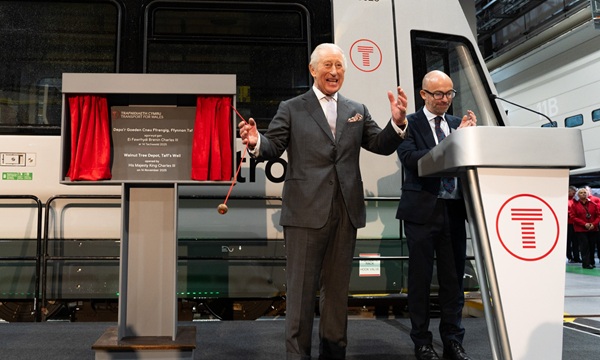
GUEST COLUMN:
Sara Jones
Head
Welsh Retail Consortium
The first Labour Budget since 2010 was delivered against a backdrop of anticipation and caution, no doubt compounded by “premature disclosure” of budget details in the preceding weeks.
The retail industry would rightly have been jittery given the pre-announcement that the minimum wage would increase, with hourly rates for over-21s to go up to £12.21 an hour, and with the much discussed potential increase in National Insurance contributions for employers.
What was delivered in the full Budget announcement will have amplified those concerns considerably for the industry, at a time when retailers are already grappling with a cost-of-doing-business crisis whilst striving to keep down prices for shoppers.
The update on the economy brought little sunshine, with economic growth only predicted to rise to 2% at best before easing back, whilst it will be 2029 before inflation returns to beneath the 2% target. That implies little rise in household disposable incomes, further increasing the challenge for retailers looking to grow their businesses.
Whilst retailers welcomed commitment to future action on rates reform, they were assessing the impact of the budget decisions in the here and now and there was a distinct absence of any light at the end of the business rate tunnel. There remain many unanswered questions about the new charges and discounts that will be levied from 2026. Charging more to businesses with higher rateable values may punish not only distribution hubs, but also larger stores, which play a key role in attracting footfall to high streets and town centres.
Retail is already paying more than its fair share of taxes compared to other industries. In Wales retailers pay 25% of all business rates in the economy. The solution is not to simply shift the burden around, but to look outside retail to address the disproportionate impact of business rates on the industry. As a devolved tax, we are calling for the Welsh Government to introduce a 20% rates discounter for the industry to help level the playing field when it comes to Non Domestic Rates in the Welsh Budget.
Increases to National Insurance contributions add to the challenges faced, and are yet another case of piling taxes on an already overburdened industry – a decision which will reduce investment in shops and jobs. As a low-margin industry and the UK’s largest private sector employer, the scale of increases will have an immediate and disproportionate effect on both retailers and their supply chains.
Retailers strongly support the objective of higher wages, and pay growth in the industry has outpaced the UK economy in eight of the last nine years. However, with retailers facing increases in costs from implementation of the Employment Rights Bill and National Insurance contributions, investment plans and economic growth will be impacted given the larger-than-expected increase to National Living Wage.
On a positive note, there was investment delivered for tackling retail crime, an escalating problem across Wales, and the UK. It was heartening to hear the Chancellor’s firm stance on shoplifting, with the announcement on extra funding aimed at tackling a scourge that costs the industry more than £1.8 billion. This is on top of the scrapping of the low-level shoplifting threshold, which has resulted in many police forces ignoring smaller crimes. Working closely with the police and Government, retailers are determined to tackle retail crime – from shoplifting to violence against retail workers.
Welsh retailers will now have a keen eye on the Welsh Government’s plans, which are set to be unveiled in early December. The WRC has written to the Welsh Finance Secretary, Mark Drakeford, to outline our own recommendations and hopes to continue the positive dialogue we have had with Cabinet colleagues to ensure the retail industry can thrive.
With a focus on capping business rates, reducing the cost burden through the easing of regulatory pressures, investment in the Welsh Government’s own Retail Action Plan, and ensuring the right skills framework for business, there is much at stake which could help or hinder the industry.
Employing more than 120,000 colleagues, and with a presence in every Welsh community, retail is a powerhouse industry which is fundamental to the health of the wider Welsh economy. We hope that the industry’s contribution and its potential to support Government in realising its own ambitions will be recognised in the forthcoming Welsh Budget. Whatever the outcome, it is one that we all have an interest in. Retail is part of our daily lives and a barometer of the health of the wider economy. Retailers will undoubtedly be hoping for some breathing space to enable them to continue providing choice and value in goods and services right across the nation.














